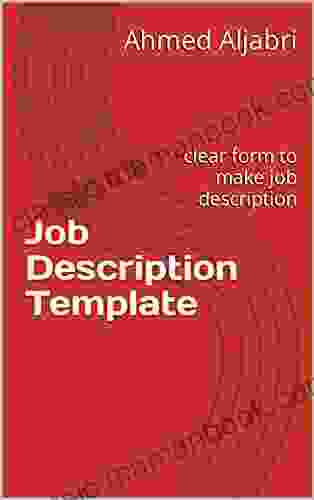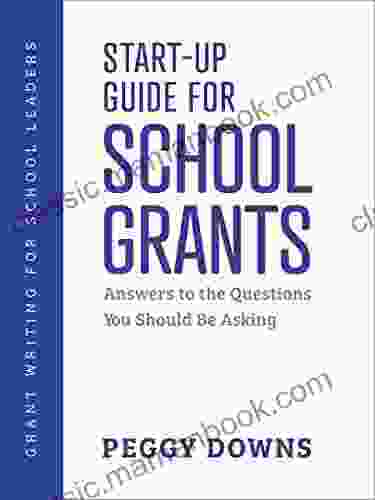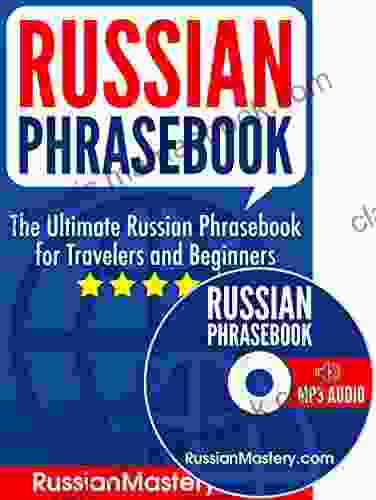Answers to the Questions You Should Be Asking: Grant Writing for School Leaders

In the competitive world of education, grant writing has become an essential skill for school leaders seeking to secure funding for innovative programs, resources, and initiatives that enhance student learning and school improvement. However, the process of writing successful grant proposals can be daunting, particularly for those who are new to the field. This article aims to provide a comprehensive guide to grant writing for school leaders, answering key questions and offering practical strategies to help them navigate the process effectively.
Understanding the Grant Writing Process
1. Identifying Funding Opportunities: The first step is to identify potential grant opportunities that align with the school's strategic goals and priorities. School leaders should research funding agencies, both public and private, to determine eligibility criteria and submission deadlines. 2. Developing a Grant Proposal: Once a suitable funding opportunity has been identified, the next step is to develop a persuasive grant proposal. This typically includes the following sections: executive summary, needs assessment, project description, budget, and evaluation plan. 3. Submitting the Proposal: Following the completion of the grant proposal, it must be submitted to the funding agency in accordance with their guidelines. This may involve online portals or physical mail submissions. 4. Review and Award Process: Funding agencies review grant proposals and select those that best meet their criteria. The review process can be competitive, and school leaders should be prepared to address any questions or requests for additional information. 5. Managing the Grant: If the grant proposal is awarded, school leaders are responsible for managing the grant according to the terms and conditions set forth by the funding agency. This includes financial reporting, compliance with regulations, and implementation of the project.
4.5 out of 5
| Language | : | English |
| File size | : | 1234 KB |
| Text-to-Speech | : | Enabled |
| Screen Reader | : | Supported |
| Enhanced typesetting | : | Enabled |
| Word Wise | : | Enabled |
| Print length | : | 64 pages |
| Lending | : | Enabled |
| X-Ray | : | Enabled |
Key Questions for School Leaders
1. What is the importance of grant writing for school leaders? Grant writing enables school leaders to secure funding for programs, resources, and initiatives that enhance student learning and school improvement. It provides access to additional financial support beyond the school's regular operating budget, allowing for the implementation of innovative and impactful projects. 2. How can school leaders identify suitable grant opportunities? To identify suitable grant opportunities, school leaders should research funding agencies, both public and private, to determine their eligibility criteria and submission deadlines. They can also join professional organizations, subscribe to funding databases, and network with other school leaders to stay informed about potential opportunities. 3. What are the essential components of a successful grant proposal? A successful grant proposal typically includes the following sections: executive summary, needs assessment, project description, budget, and evaluation plan. The executive summary provides an overview of the project and its significance, the needs assessment establishes the need for the project and its potential impact, the project description outlines the project's objectives, activities, and timeline, the budget details the estimated expenses and sources of funding, and the evaluation plan describes how the project's success will be measured and evaluated. 4. What are some common mistakes to avoid when writing grant proposals? Some common mistakes to avoid when writing grant proposals include failing to align the proposal with the funding agency's specific goals and objectives, neglecting to provide a clear and compelling needs assessment, underestimating the project's budget and timeline, and failing to develop a strong evaluation plan to measure the project's impact. 5. What strategies can school leaders use to increase their chances of grant success? To increase their chances of grant success, school leaders should start by identifying funding opportunities that genuinely align with their school's strategic goals and priorities. They should then take the time to develop a well-written and persuasive grant proposal that clearly demonstrates the need for the project, its potential impact, and its feasibility. Additionally, school leaders should seek feedback from colleagues, external experts, or grant writing consultants to strengthen their proposal before submission.
Practical Strategies for Effective Grant Writing
1. Align with School's Strategic Goals: Grant proposals should directly align with the school's strategic goals and priorities. School leaders should ensure that the proposed project supports the school's mission and vision and contributes to its long-term success. 2. Conduct a Thorough Needs Assessment: The needs assessment section of the grant proposal should provide a clear and compelling justification for the proposed project. This involves gathering data and evidence to demonstrate the need for the project and its potential impact on student learning and school improvement. 3. Develop a Detailed Project Description: The project description should provide a comprehensive overview of the proposed project, including its objectives, activities, timeline, and expected outcomes. School leaders should clearly articulate how the project will address the identified needs and achieve its goals. 4. Create a Realistic Budget: The budget section should detail the estimated expenses and sources of funding for the proposed project. School leaders should ensure that the budget is realistic and aligns with the project's scope of work and timeline. 5. Develop a Strong Evaluation Plan: The evaluation plan should describe how the project's success will be measured and evaluated. This involves establishing clear performance indicators and outlining the data collection and analysis methods that will be used to assess the project's impact. 6. Seek Feedback and Support: School leaders are encouraged to seek feedback from colleagues, external experts, or grant writing consultants to strengthen their grant proposal before submission. This feedback can help identify areas for improvement and ensure that the proposal is well-written and persuasive. 7. Follow Submission Guidelines: School leaders should carefully follow the submission guidelines provided by the funding agency. This includes adhering to deadlines, formatting requirements, and providing all necessary supporting documentation.
Grant writing is an essential skill for school leaders seeking to secure funding for programs, resources, and initiatives that enhance student learning and school improvement. By understanding the grant writing process, answering key questions, and implementing effective strategies, school leaders can increase their chances of grant success and secure the necessary resources to support their school's strategic goals and priorities.
4.5 out of 5
| Language | : | English |
| File size | : | 1234 KB |
| Text-to-Speech | : | Enabled |
| Screen Reader | : | Supported |
| Enhanced typesetting | : | Enabled |
| Word Wise | : | Enabled |
| Print length | : | 64 pages |
| Lending | : | Enabled |
| X-Ray | : | Enabled |
Do you want to contribute by writing guest posts on this blog?
Please contact us and send us a resume of previous articles that you have written.
 Top Book
Top Book Novel
Novel Fiction
Fiction Nonfiction
Nonfiction Literature
Literature Paperback
Paperback Hardcover
Hardcover E-book
E-book Audiobook
Audiobook Bestseller
Bestseller Classic
Classic Mystery
Mystery Thriller
Thriller Romance
Romance Fantasy
Fantasy Science Fiction
Science Fiction Biography
Biography Memoir
Memoir Autobiography
Autobiography Poetry
Poetry Drama
Drama Historical Fiction
Historical Fiction Self-help
Self-help Young Adult
Young Adult Childrens Books
Childrens Books Graphic Novel
Graphic Novel Anthology
Anthology Series
Series Encyclopedia
Encyclopedia Reference
Reference Guidebook
Guidebook Textbook
Textbook Workbook
Workbook Journal
Journal Diary
Diary Manuscript
Manuscript Folio
Folio Pulp Fiction
Pulp Fiction Short Stories
Short Stories Fairy Tales
Fairy Tales Fables
Fables Mythology
Mythology Philosophy
Philosophy Religion
Religion Spirituality
Spirituality Essays
Essays Critique
Critique Commentary
Commentary Glossary
Glossary Bibliography
Bibliography Index
Index Table of Contents
Table of Contents Preface
Preface Introduction
Introduction Foreword
Foreword Afterword
Afterword Appendices
Appendices Annotations
Annotations Footnotes
Footnotes Epilogue
Epilogue Prologue
Prologue Jess Whitecroft
Jess Whitecroft Rob Gifford
Rob Gifford Haylie Pomroy
Haylie Pomroy Norman Maccaig
Norman Maccaig Cameron Lancaster
Cameron Lancaster Greg King
Greg King Tevin Ali
Tevin Ali Rahima Baldwin Dancy
Rahima Baldwin Dancy Lois Mcmaster Bujold
Lois Mcmaster Bujold Marv Wolfman
Marv Wolfman James F Coyle
James F Coyle David Perlmutter
David Perlmutter Vanessa Tourinho
Vanessa Tourinho Sylvia Fraser
Sylvia Fraser Richard Erlanger
Richard Erlanger Tyrell Madison
Tyrell Madison John Grace
John Grace Ted Riley
Ted Riley Melvin I Urofsky
Melvin I Urofsky Archie Goodwin
Archie Goodwin
Light bulbAdvertise smarter! Our strategic ad space ensures maximum exposure. Reserve your spot today!

 W. Somerset MaughamEthan of Athos: A Complex and Compelling Character in the Vorkosigan Saga
W. Somerset MaughamEthan of Athos: A Complex and Compelling Character in the Vorkosigan Saga Ken SimmonsFollow ·18.3k
Ken SimmonsFollow ·18.3k Devon MitchellFollow ·12.6k
Devon MitchellFollow ·12.6k Phil FosterFollow ·7.7k
Phil FosterFollow ·7.7k Jeff FosterFollow ·4.9k
Jeff FosterFollow ·4.9k Osamu DazaiFollow ·4.8k
Osamu DazaiFollow ·4.8k Bruce SnyderFollow ·9.9k
Bruce SnyderFollow ·9.9k Devin CoxFollow ·10.2k
Devin CoxFollow ·10.2k Art MitchellFollow ·4.1k
Art MitchellFollow ·4.1k

 Bryan Gray
Bryan GrayCello Alternativo: Exploring Contemporary Pizzicato...
: Embracing the Avant-Garde Within...

 Victor Hugo
Victor HugoThe Social Revolution: Barry Libert's Vision for a More...
In a world where...

 Tony Carter
Tony CarterA Comprehensive Guide to Crafting Clear and Effective Job...
A job description is a critical tool...

 Deacon Bell
Deacon BellSelected Poems And Prose Lorenzo Da Ponte Italian Library
Lorenzo Da Ponte, born...

 Francisco Cox
Francisco CoxWhat You Need To Know About Opportunity Cost: A...
Opportunity cost is a fundamental concept...

 Bill Grant
Bill GrantWhy Our Kids With Behavioral Challenges Are Falling...
Every year,...
4.5 out of 5
| Language | : | English |
| File size | : | 1234 KB |
| Text-to-Speech | : | Enabled |
| Screen Reader | : | Supported |
| Enhanced typesetting | : | Enabled |
| Word Wise | : | Enabled |
| Print length | : | 64 pages |
| Lending | : | Enabled |
| X-Ray | : | Enabled |







